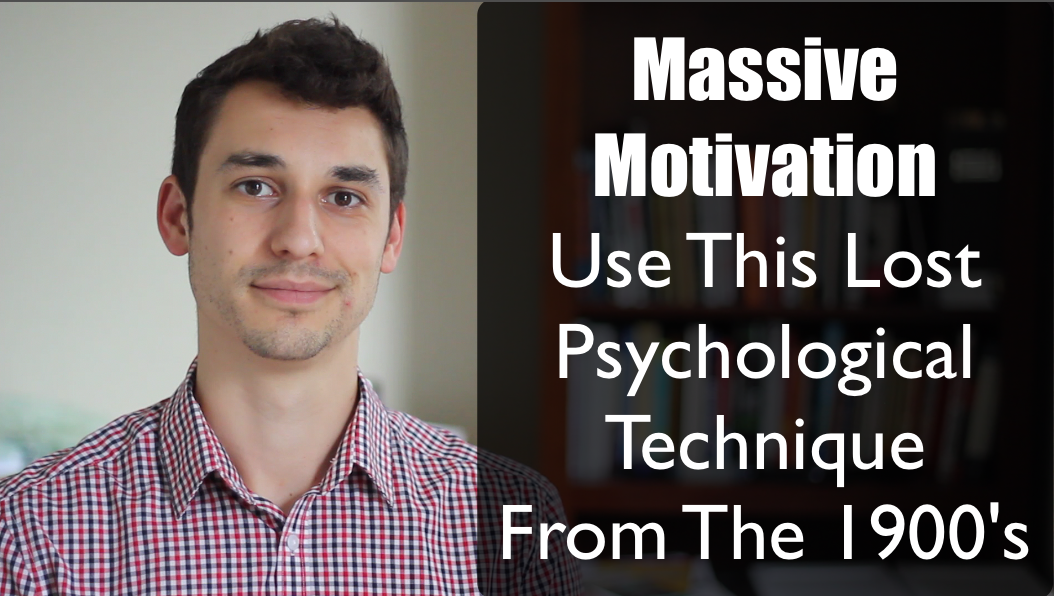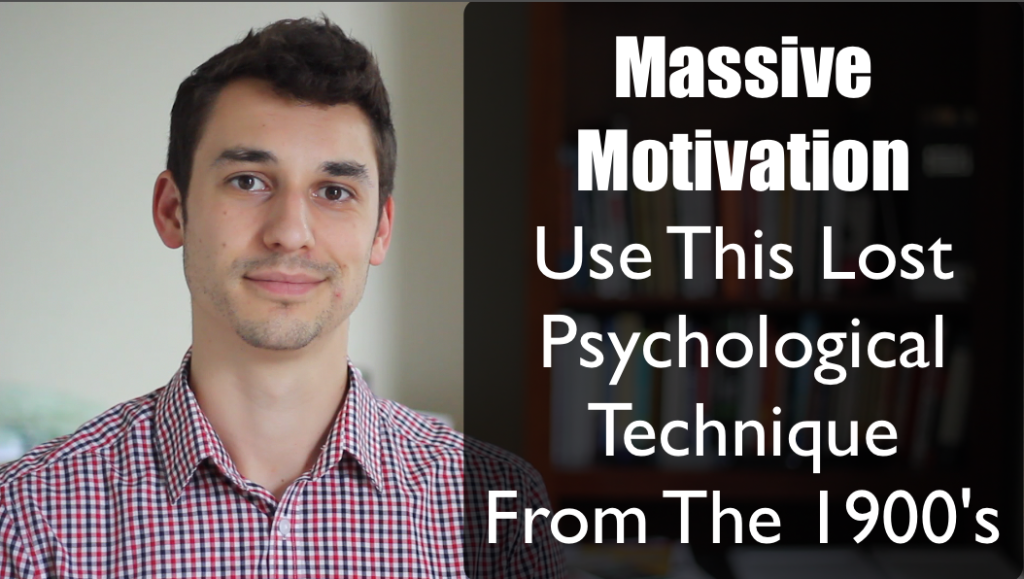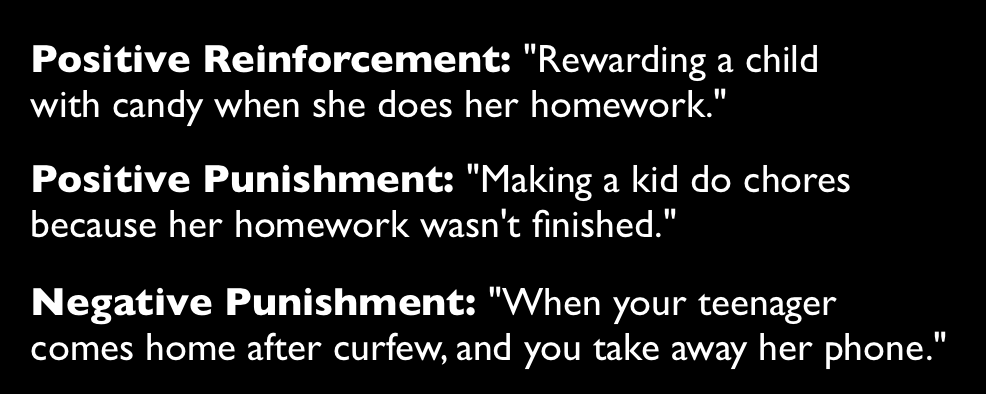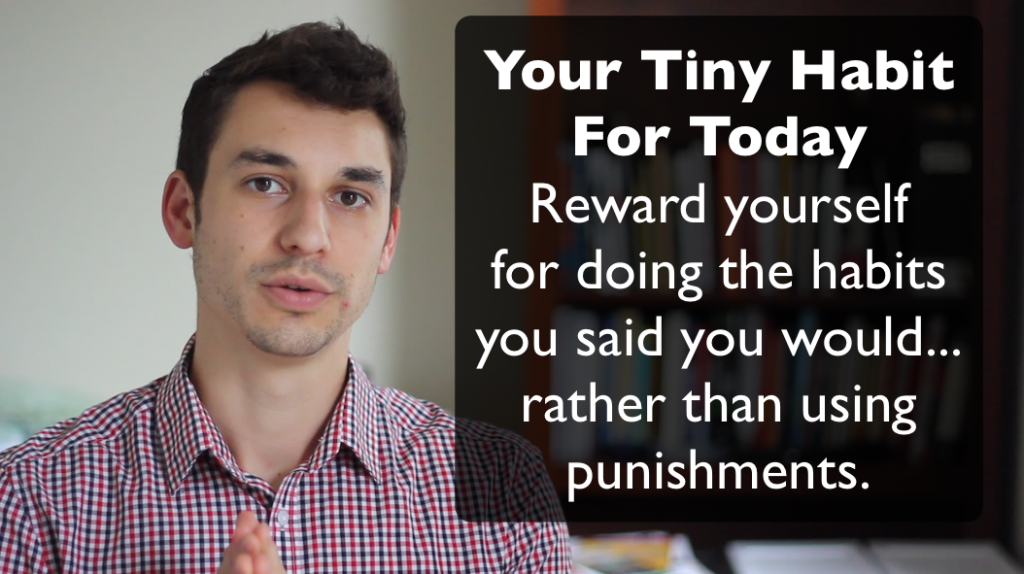
Struggling to Stay Motivated to Exercise or Eat Healthy? Use This Lost 1900s Technique From Psychology

It always struck me as strange.
In the health space, we always punish ourselves assuming that we’ll be MORE motivated to do the workout, or eat the healthy food, or engage in the healthy habits we have planned.
So if we don’t go to the gym we say things like, “okay, I can’t eat that ice cream now. I didn’t earn it.”
But in the 1900’s, a well known psychologist known as B.F. Skinner suggested that there is a much better way to motivate yourself to change behavior.
And it didn’t involve punishing yourself for anything.
Obscure 1900s Psychology… in 2015
What B.F. Skinner Discovered About Changing Our Behavior
B.F. Skinner was a well known psychologist that developed many theories on behavior and behavioral change, and what really causes people to change their behavior.
And I mean, truly change behavior – in the face of punishments like prison time or rewards like giving a kid candy for doing her homework.
One thing he found was that POSITIVE rewards have better results long term than punishments.
So here’s what I mean:
Guess what he found? Positive reinforcement is superior to punishment because it not only results in a better (long-term) change, but also doesn’t have some of the negative side effects that punishments have.
Some examples:
- Positive reinforcement – When a kid does her homework on time, rewarding her with a piece of candy. You are adding something desirable.
- Positive punishment – Making a kid do chores because she didn’t finish her homework on time. You are adding something undesirable.
- Negative punishment – Your teenager comes home after curfew, and you take away her phone for a few days and ground her. You are taking something desirable away.

What This Means For You
If you’re trying to change your habits, you’re better off focusing on rewarding yourself for doing the habits you said you would, rather than punishing yourself for not doing them.
The “positive reinforcement” (the first of the three definitions above) results in the best long-term behavioral change.
Interesting tip: this is why people theorize the prison system doesn’t work. Inmates are punished and not given any methods for rehabilitating their behavior. Some prisons are starting to catch on and offer cool things like creative internet usage as well as behavioral change programs like meditation.
What To Do Instead of Punishing Yourself… To ACTUALLY Change Habits
Think about it – it really sucks punishing yourself.
Let’s say you didn’t do the workout you wanted and planned, and now you’re going to punish yourself because you didn’t do the workout.
So now you’ve got TWO punishments… when all you wanted was to be happy and proud of yourself.
You feel guilty for not working out, and now you feel crappy because you can’t have the ice cream.
Everything we do is often revolving around “You can’t do this, you can’t do that” – and it just makes the whole health process suck and turn into something we want to avoid.
But what if, instead, you offered something you really liked to your routine?
So let’s say you took my advice on cultivating the habit of creating a morning routine.
You decide to get up, do 5 minutes of yoga, 5 minutes of meditation, and do 5 minutes reading a health book.
And instead, what if you did this 5/5 days this week, and as a reward, you took yourself out to get an hour massage?
If you love massages as much as I do, this is pretty much the best thing in the world.
And you’re going to be a LOT more likely to want to engage in the behavior with a reward, rather than “yet another” punishment or thing you can’t do.
What if you planned on doing a 10 minute walk today, and then you did it, so you let yourself go out to the movies, or watch your favorite TV show, or have a square of dark chocolate after dinner.
This is very different from figuring out how to punish yourself if you don’t do something – which is already charged with anxiety, guilt and frustration.
Instead, now you have something to look forward to, which feels good, excites you, motivates you, and is something you enjoy. The whole experience is filled with positivity.
Your Tiny Habit For Today

Give yourself a daily habit you are trying to cultivate, and reward yourself at the end of the week if you did 5/5 days.
Or, give yourself a smaller reward on a daily basis – a TV show, dinner with a friend, a movie, some chocolate, etc.
Personally, the weekly massage reward is pretty much as good as it gets for me ;-).
What about you? Do you use rewards when you’ve done a good job? Tell me what you use below.
– Alex
More information on B.F. Skinner and reinforcement theory: http://en.wikipedia.org/wiki/Reinforcement
